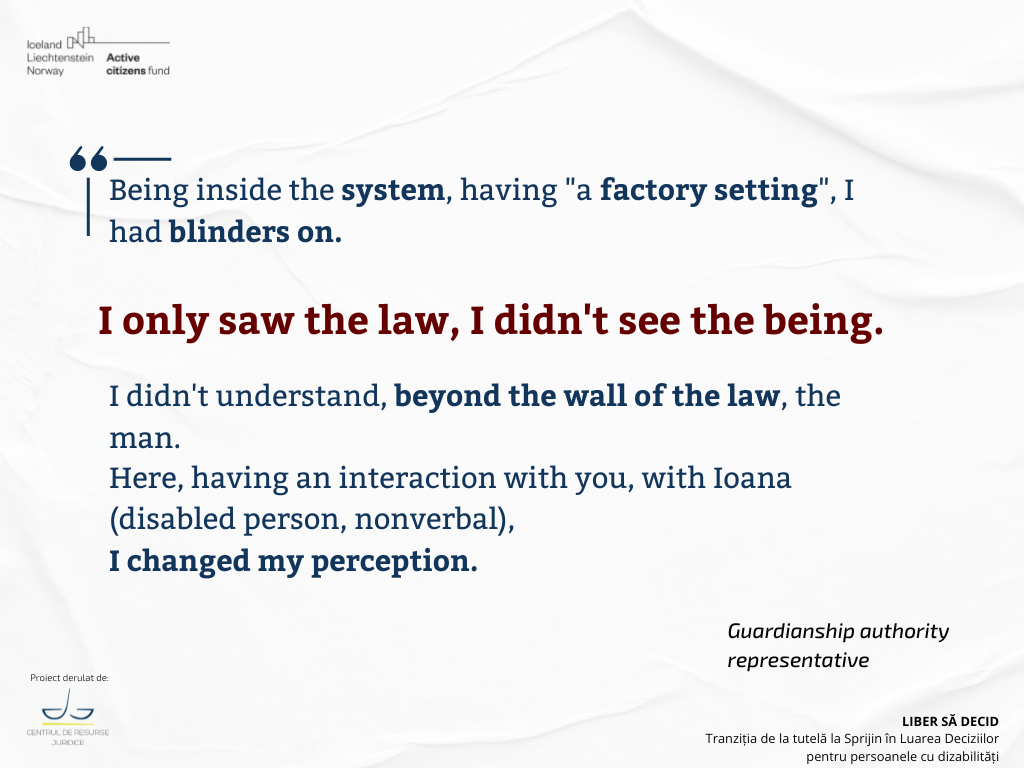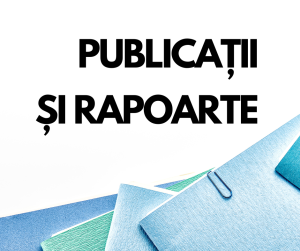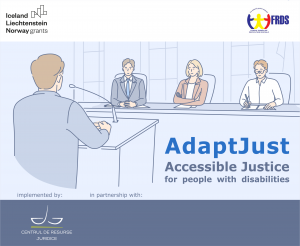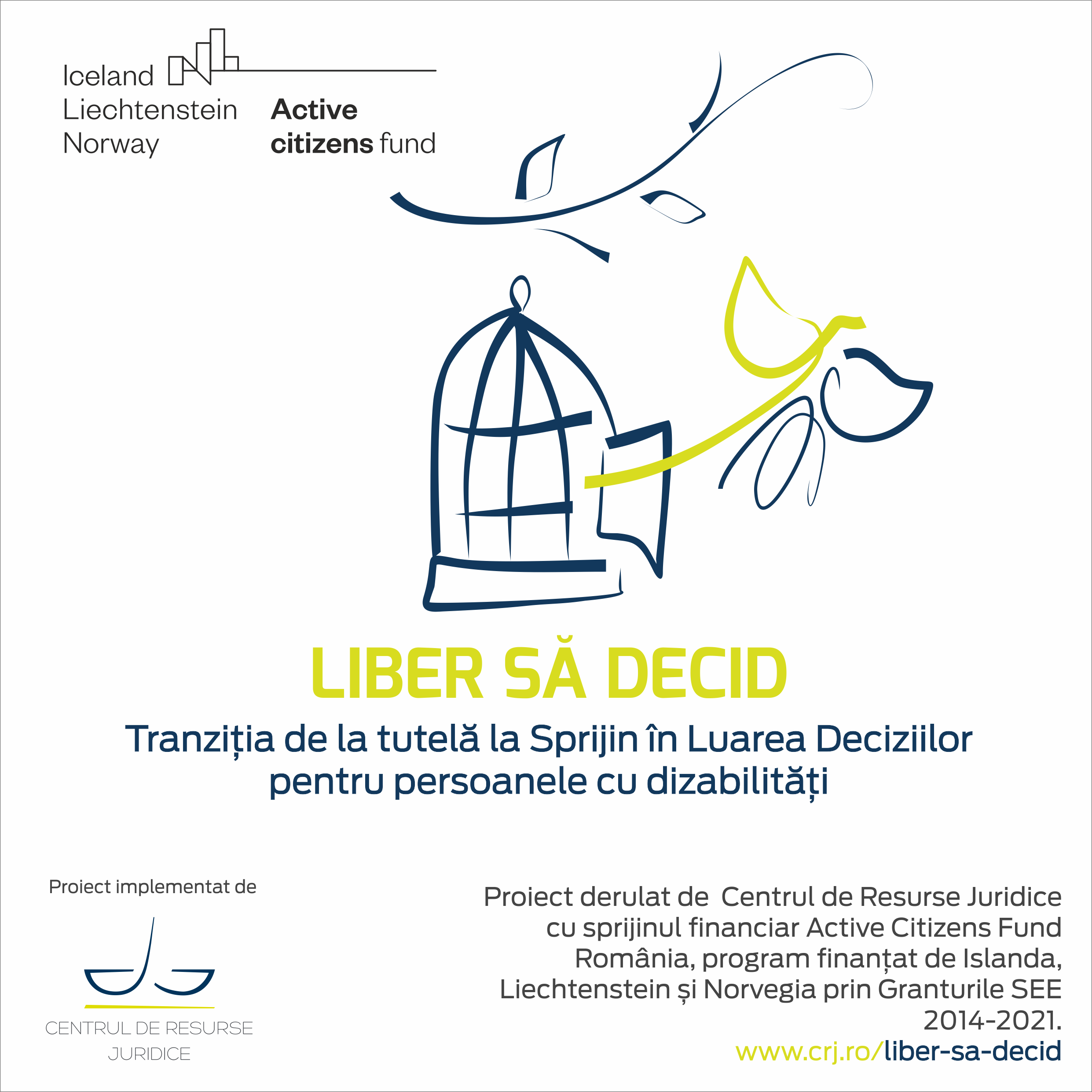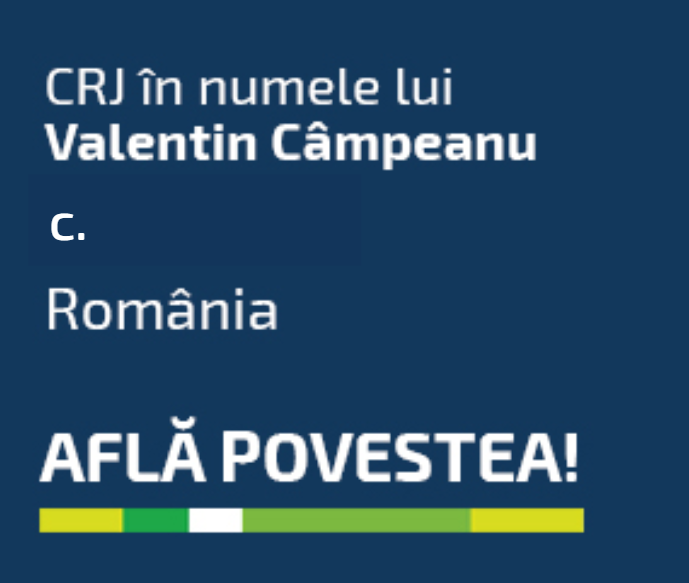Uncertainty, newness, hope – a few words that sum up the year 2022 for people with disabilities. But we hope that we are talking about changes that will have a timely impact on the estimated 100,000 people with intellectual and psychosocial disabilities.
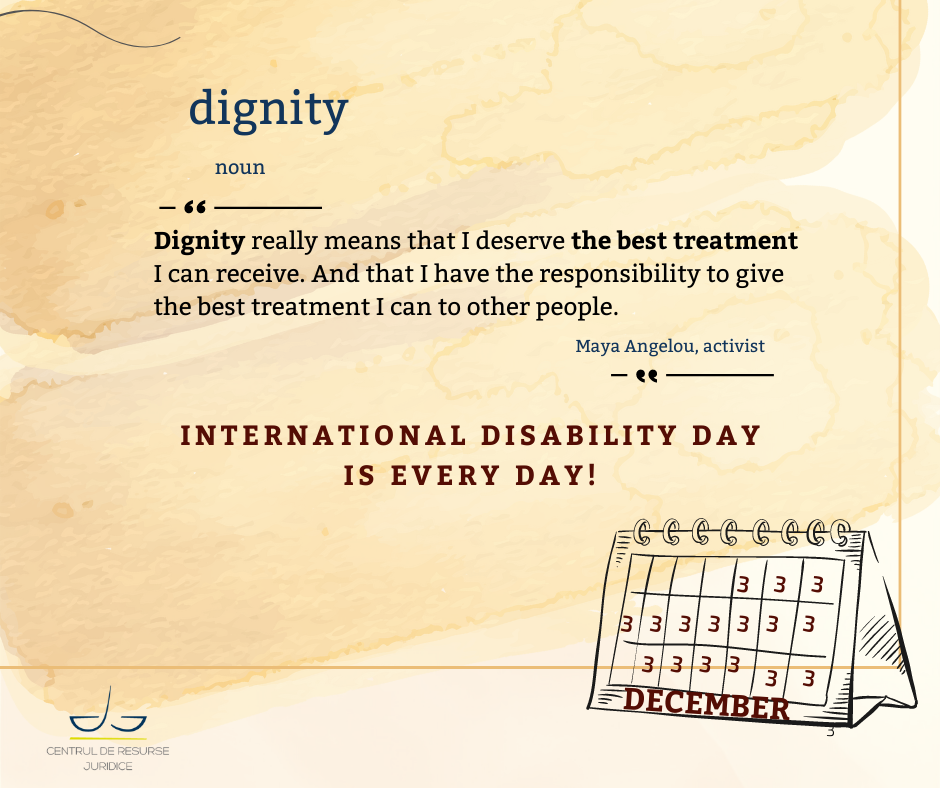
3 December marks the annual International Day of Persons with Disabilities. It is perhaps the first year in which we can speak of concrete steps towards respecting the rights of people with disabilities in Romania, and especially the rights of people with intellectual and psychosocial disabilities.
A few milestones for 2022
18 August, 2022: Law 140 – Protective measures for people with intellectual and psychosocial disabilities came into force, more than 2 years after the CCR decision 601/2020.
An extremely important law for adults with disabilities, Law 140 sets out new protections for people with intellectual and psychosocial disabilities. This means that within 3 years, all final prohibition orders will be reviewed.
Under Law 140/2022, the life ban on adults with intellectual and psychosocial disabilities, the so-called “civil death”, is abolished. There are new legislative developments that the disabled person can benefit from:
- Assistance for the conclusion of legal acts
- Legal advice.
- Special guardianship
Moreover, it is for the first time in the history of disability in Romania that degrading terms against people with disabilities are removed.
November 2022, 4 months after the entry into force of Law 140/2022, the Methodology for the evaluation and preparation of psychological and medical assessment reports was published in the Official Gazette of Romania.
So, for the more than 50,000 requests for review (perhaps twice as many), we now have a few tools – the methodologies and the report in the Official Journal.
April, 2022, the National Disability Rights Strategy “A fair Romania” 2022-2027 was adopted and the Disability Strategy was published in simplified language accessible to people with intellectual disabilities.
The existence of Law 140/2022 and the Assessment Methodology are two pieces of good news coming in 2022 regarding the rights of people with intellectual and psychosocial disabilities in Romania. However, there are still many, many steps that the Government still has to take to ensure a dignified life for these people.
We consider it a matter of utmost urgency to prioritise compliance with the obligations arising from ECHR rulings on the rights of persons with disabilities.
In Romania, 57% of the judgments handed down by the ECHR in the last ten years remain pending implementation – this is the alarm signal that international institutions are sounding regarding people with disabilities in our country. This year, representatives of the Committee of Ministers of the Council of Europe visited Romania twice in just four months, and a delegation from the Committee for the Prevention of Torture and Inhuman or Degrading Treatment or Punishment (CPT) visited Romania unannounced. An unannounced visit by the CPT may be an indication that people with disabilities are at risk.
Romania has been condemned multiple times at the ECHR for violating the rights of persons with intellectual and psychosocial disabilities, especially in the areas of access to health services, dignified life in the community, access to justice, arbitrary deprivation of liberty, inhuman and degrading conditions of treatment, family life and child rearing and care. Moreover, the Committee of Ministers of the Council of Europe adopted an interim Resolution to urge the Romanian Government to execute the ECHR judgment.
- In 2019, there were 1,008 deaths in residential services. Of these, 43% were people with intellectual disabilities.
- The mortality rate is 16 times higher among young people with disabilities in institutions than the general population.
Mental health must become a priority for the Romanian Government
The Romanian Government, through the relevant institutions, still has major problems in implementing the principles of the UN Convention on the Rights of Persons with Disabilities:
- The lack of community psychiatric services continues to claim victims among people who could have a decent life with their families.
- Romania still does not have a mental health department within the Ministry of Health.
- The Ministry of Health has not requested a single euro for the community psychiatry system from the money allocated by the Operational Health Programme (POS) 2021- 2027.
We request the Ministry of Health, Minister Alexandru Rafila and Prime Minister Nicoalea Ciucă, to urgently take the necessary measures, including:
- The appointment of a coordinator at government level for the execution of the obligations arising from the ECHR judgments against Romania on psychiatry and the rights of persons with disabilities.
- Implementation of a concrete, urgently budgeted plan for the community psychiatry system.
- Take over at the level of the Prime Minister’s Office the National Mechanism for Coordination of the Implementation of the UN Convention on the Rights of Persons with Disabilities at the level of the Government.
People with disabilities need accessible justice to survive in the community
We still need training for those who directly interact with and decide the fate of people with disabilities, people trapped in unadapted conditions and sterile, bureaucratic, uniform meetings that do not take into account the real needs and interests of the individual. Judges, prosecutors, lawyers, social workers and doctors are the ones who will participate in this whole process. The law must break down theoretical walls and be translated into everyday reality:
- Training of magistrates on the right to community living and decision support for people with intellectual and psycho-social disabilities;
- Training magistrates and community psychiatry staff in appropriate interaction with people with disabilities.
- Encouraging magistrates to train and implement whatever procedural adaptations are necessary so that the justice system becomes accessible and of real benefit to people with disabilities.
Change requires effort and collaboration between state institutions and civil society – without it, “independent life”, “rights”, “dignity” remain empty words. And for this, civil society in Romania has at least two tools at its disposal: Rule 9 reporting to the Committee of Ministers and shadow reporting to the CRPD.
But, beyond all these “official” mechanisms, we always have our own attitude at hand: to listen with an open mind and heart to a person who, secondarily, also has an intellectual or psychosocial disability. “Let’s try to see the human being, not the Law.”
